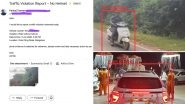New Delhi, Dec 21 (PTI) From policy stability to emphasis on exports of local goods, key industry players on Saturday discussed and suggested measures for making India a USD 5 trillion economy.
SAIL Chairman Anil Kumar Chaudhary, ITC Chairman and Managing Director Sanjiv Puri, Cadila Healthcare Chairman Pankaj R Patel, Bharti Enterprises Vice Chairman Rajan Bharti Mittal and JK Paper Vice Chairman and Managing Director Harsh Pati Singhania took part in the discussion during a session on 'India: Roadmap to a USD 5 trillion economy' organised by industry chamber FICCI here.
The executives stressed on the need for Indian manufacturing to become globally competitive and join global value chain as the key ingredients for becoming a USD 5 trillion economy.
"If we have to reach the level of USD 5 trillion economy by the next five years, we have to be globally competitive. India also needs to increase its exports of steel and other manufactured items," SAIL Chairman Chaudhary said.
Cadila Healthcare Chairman Patel said that policy stability is required for any business to grow. "Without policy stability it becomes impossible for industry to plan long-term goals."
"We all know that manufacturing is not something we can decide today and begin the production tomorrow. It takes time. Besides, innovation has the most important role to play for any industry to survive," he said.
Bharti Enterprises' Rajan Mittal suggested that the government should focus on strengthening the digital backbone of the country.
Industry has been disrupted, he said adding that government's intervention is needed.
J K Paper's Singhania said the country's manufacturing sector first needs to become internally competitive as several factors are still holding it back including the multiplicity of regulations from different regulators.
ITC CMD Puri said that "farming is a large employer. Lots of jobs were created in the post-harvest management".
"Even the food processing segment has the largest employment to capital ratio. We need to plug into the global value chains in value-added agricultural products," he added.
(The above story is verified and authored by Press Trust of India (PTI) staff. PTI, India’s premier news agency, employs more than 400 journalists and 500 stringers to cover almost every district and small town in India.. The views appearing in the above post do not reflect the opinions of LatestLY)













 Quickly
Quickly


